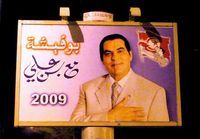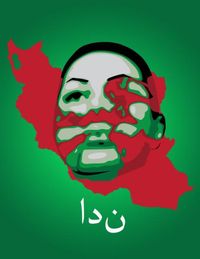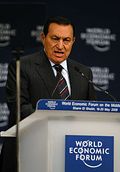Think of this as Volume 15, Number 7 of A-Clue.com, the online newsletter I've written since 1997. Enjoy.

Some of the stupid I heard on the TV was fairly understandable. Everyone was asking what this means to the U.S. Almost as if Tunisia or Egypt, and their people, did not exist. The fear was that some Islamic party might take over, that Egypt could become another Iran.
It could happen, but if that move is tried it can't succeed. The same forces that made the Tunisian and Egyptian governments vulnerable guarantee it.
And this is the point that is most misunderstood.

The Internet has changed how economies work. Everyone has Internet access, if only through a phone. Take that down and the economy stops working. People can't trade. The OECD estimates Egypt's Internet take-down cost if $90 million but that's just the direct cost. The cost of being considered an unreliable place in which to do business is incalculable.
When people were angry a generation ago, they might call a strike. A general strike could be broken because poor people would have to eat, and they could not afford to be away from work for long, even if that work was back-breaking, even if the pay were meager.
When you take the Internet down, you take the economy down just as you would with a general strike. Only now it's the government that is doing it. And it's the government that suffers. It's the government that has basically gone on strike, not the people, and more important the people know it. It's an admission of economic as well as political bankruptcy — most governments can afford the latter but few can afford the former.

Short-term success by a Hosni Mubarak is followed now by a complete collapse of the economy. In the end he has only two choices. Become, like Robert Mugabe of Zimbabwe, the King of Mud, a ruler of nothing, or find an exit strategy. There's no longer a second "power" (like the Soviet Union) to play off of. His destruction is just a matter of time.
Now about that assumption of Islamic Rule. Like a military government, an Islamic Republic is an autocracy, only with different autocrats. It's no friend of unlimited Internet use. We saw, last year in Iran, how people could use the Internet against that government, but because that revolt was put down you might think that's the end of it.
Here's the problem. Iran is, like Libya and Saudi Arabia, like Russia, a resource-based economy. The majority of the commerce is done by a small minority of the people. So Iran's regime could survive. The best weapon we have against Iran's Mullahs is to deny them the latest oilfield technology.
That is another reason why the War Against Oil is so important. Renewable energy rides on solar technology which uses the same techniques that created your PC. Other forms depend on breakthroughs that can only take place in free minds, using free markets, and an open Internet. The Internet, in other words, drives renewable energy, and as it drives renewables it takes down the power of fossil fuels like oil. Along with economies, and governments, which depend on oil.
So an Islamic Republic, in the Internet Age, can't survive for long. It can live for a time where there is no real economy, as in Afghanistan or western Pakistan. It can live for a time where the economy is based on resources, like Iran or Saudi Arabia. It can live for a while on a wave of religious fervor anywhere, but only for a while. Once the economy has to get going again, it's vulnerable. Alternative ideas will exist, and the only way to put them down is to further damage the economy.
This is something Americans don't understand about China. We love to claim that China has clamped down on the Internet, that the Great Firewall rules there. It doesn't. There is, in fact, a balance.
The more money someone has, the more freedom to communicate they gain. I have friends in China, good friends, and they do not feel restrained in what they write to me. At the same time, the vast majority of Chinese (including my friends) understand well the link between Internet communications and economic growth. And the Chinese government does know (whether Americans credit this or not) that it must, as its economy becomes more dependent on intellectual property, give more-and-more people more-and-more freedom, and more-and-more self-determination. It's delicate, but the point is it's not black-and-white. It's not even shades of gray. It's Technicolor.
I have lon
What makes the Internet irresistable is not political. It's economic.
As an economy becomes dependent on open Internet access, even if that's just through phones, politics has to follow. Liberty must win the day when you depend on trained minds for profit.










Great! Between this post and What Renewables say about Egypt http://www.renewableenergyworld.com/rea/blog/post/2011/02/what-renewables-say-about-egypt
I’m finally seeing why you attach such importance to the war against oil in a way I can understand and support. I like your ideas, facts, and the way you lay them out. Thanks!
Great! Between this post and What Renewables say about Egypt http://www.renewableenergyworld.com/rea/blog/post/2011/02/what-renewables-say-about-egypt
I’m finally seeing why you attach such importance to the war against oil in a way I can understand and support. I like your ideas, facts, and the way you lay them out. Thanks!